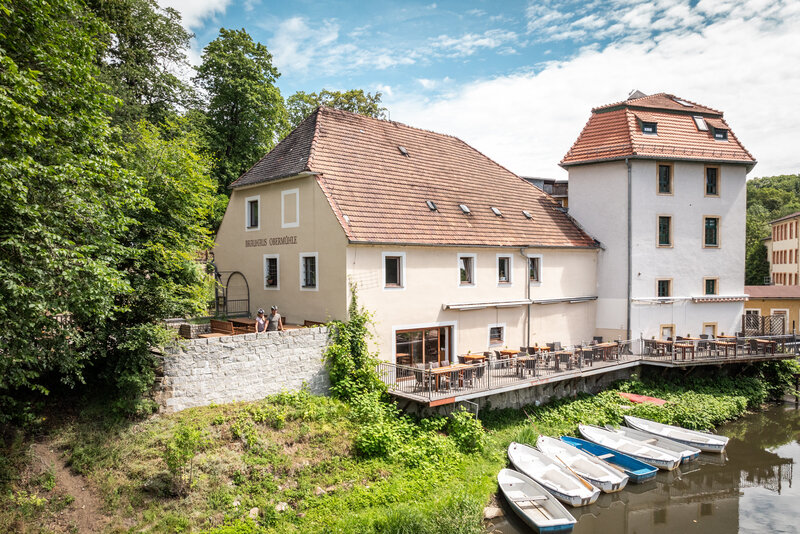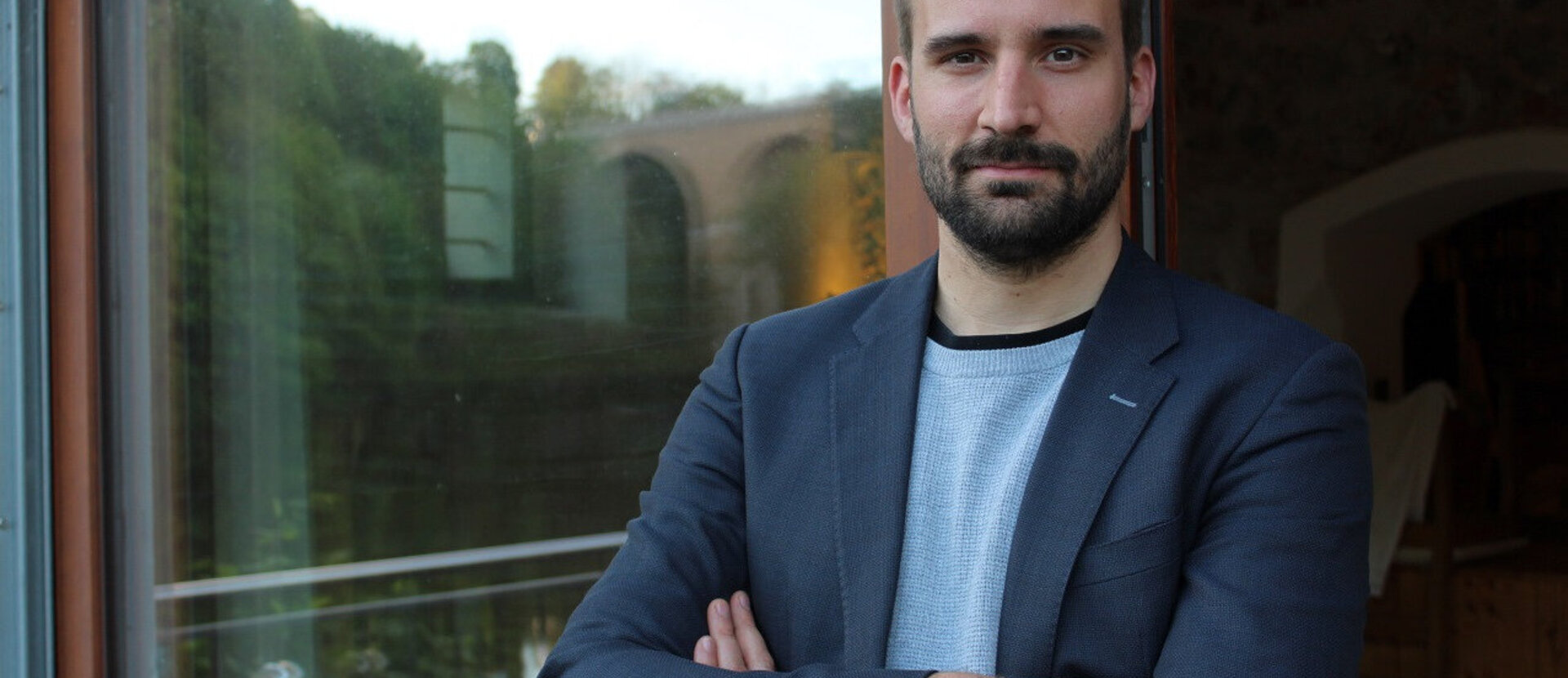
Craftsmanship meets culinary art: beer brewing, home-grown vegetables, slow food and a creative approach to regional ingredients characterize the philosophy of the Obermühle in Görlitz. In this interview, Jörg Daubner, trained chef and managing director, explains how a cab driver had a decisive influence on his life, why passion is the most important ingredient in the restaurant business and what visions he has for the culinary identity of Upper Lusatia.
Mr. Daubner, before we talk about the Obermühle, why don't you tell us something about your career? How did you get to where you are today?
I trained as a chef and completed my apprenticeship in Berlin before studying at the University of Potsdam. I learned about self-employment early on through my family. My mother had studied food technology and graduated in beer brewing. She had owned the Obermühle since 1992, having been in the family since 1953. A year later, she started brewing beer herself. We then sold it at marketplaces in the region. It wasn't until 1999 that she opened the restaurant. In 2016, I finally took over the management of the family business.
Was taking over and continuing the tradition always your goal?
Not necessarily. I actually wanted to study and try things out. A formative moment was when I met a cab driver in Berlin. He advised me not to study hotel management, as I had actually intended, but to study business administration and something for the heart - philosophy. His advice convinced me. One day later, I enrolled for both subjects in Potsdam.
A stranger talked you out of your original plan?
Exactly, but I believe in the power of such moments. If we are open enough, we simply realize that things make sense. That was the case for me at the time.
What do enjoyment and food mean to you personally?
For me, food is a cultural experience. Enjoyment has a deeper meaning when you know the background - the origin of the ingredients, the techniques. I learned this particularly during my time in Michelin-starred gastronomy at Hugo's in Berlin. That still shapes my view of quality today. It's about understanding a craft and constantly developing it further.
How did you start at the Obermühle? Did you still cook a lot yourself?
Yes, I helped cook at the beginning. Back then, we had five employees and I had to take on many roles at the same time. During the pandemic, I even cooked for the nurseries myself when emergency childcare was provided. Cooking is still part of my life, but my responsibilities are now mainly in management.
The Obermühle concept is special. What characterizes it?
We follow the slow food philosophy that my mother introduced. The focus is on regionality and our own production. We brew beer, make pasta and distillates, grow vegetables and produce apple juice. That is our claim: consistently sustainable and creative.
How do you manage to organize such a wide range of products?
It takes passion - and that sometimes has a lot to do with suffering. Gastronomy is complex and requires commitment. Our team works with great commitment. My management style is always communicative and individual. I always ask: "What do you need to make it work?" Trust is central to this.
How is Upper Lusatia reflected on your plates?
We try to interpret traditional dishes in new ways without losing touch with the region. I once interpreted the Silesian Himmelreich in a modern way. It is traditionally prepared with dried fruit sauce, pork belly and potatoes. My version consisted of confit pork belly, an apple and whisky sauce and a potato soufflé.
What is your vision for the culinary identity of Upper Lusatia?
Defining the culinary identity of Upper Lusatia is a challenge. But I think we have to combine the regional character with modern approaches. This is a process that we are shaping together with our team. Upper Lusatia is a culinary melting pot - it combines Polish, Czech and German influences. My vision is to make this diversity more visible without becoming dogmatic. For me, regionality also means openness and creativity.
How does your team develop the menu?
We are working in an increasingly participative way. Just yesterday, we collected ideas for the new menu at a barbecue. Ambitious chefs need freedom to contribute their creativity. This is important for quality and the team atmosphere.
Finally: What does it mean to you to work at the Obermühle?
It's a privilege to be able to work with such a great team and this history. Here I can live out my passion for good food, regionality and leadership. And I hope that our guests feel that.

